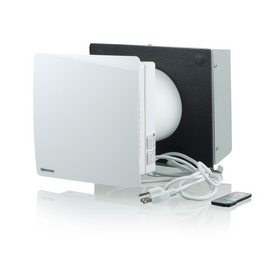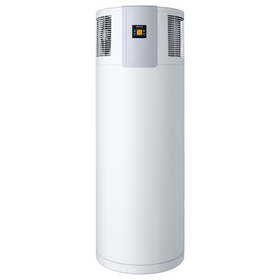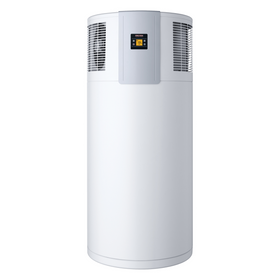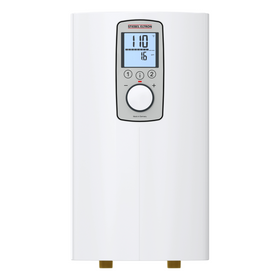
Buying a Home? Look for the HERS Rating
Last Updated: Apr 7, 2025Every year the Parade of Homes in the Twin Cities showcases nearly 400 new homes spread throughout a seven-county metropolitan area.
For the past few years, more than two-thirds of the properties on display carry a “HERS” rating that lets potential buyers know how efficiently the homes operate. Builders believe having the ratings helps sell homes, and buyers have become aware enough to ask for them.
More than half the new homes annually in Minnesota get rated among the country’s highest percentages. (Massachusetts leads with 71 percent of new homes being ratings.) The national index boasts that more than 2.6 million homes across the country carry HERS’ evaluations, and numbers grow every day.
Why Buy a HERS Rated Home?
HERS rated homes inform people better so that they can save on heating and cooling. And they have higher resale values.
Homeowners have the added confidence of knowing a national rating system has judged the efficiency of their homes. If the home achieves a low score, they will have peace of mind knowing that their homes’ carbon footprint is much less than other homeowners, too.
In nearly every case, the owners of HERS homes will be empowered to consume less energy – and emitting less carbon through heating and cooling – than most other American households.
HERS homes have higher appraisals and sell for higher prices than non-HERS homes. One North Carolina study showed a HERS home selling for 9.5 percent more on average.
Table of Contents
- What Is HERS?
- How Is the HERS Rating Determined?
- How Can A High HERS Score Be Achieved?
- How Does HERS Relate To Appliances?
- How Do Windows Affect the HERS Rating?
- How Does Insulation Affect the HERS Rating?
- Does An HVAC System Affect the HERS Rating?
- How Does Lighting Affect the HERS Rating?

What Is HERS?
The acronym stands for the “home energy rating system.” Developed by the California-based Residential Energy Services Network (RESNET), HERS is generally applied to new homes, although existing homeowners could pay to have their homes rated.
Understanding a HERS rating is not all that difficult. Homes get rated on a 0 to 150 basis, with a net-zero home having the highest energy efficiency and energy production through solar panels.
The US Department of Energy estimates a typical resale home carries a rating of 130. A home constructed to meet the 2006 International Energy Conservation Code scores 100.
Of course, new homes with a rating of 60 or below would be considered very efficient. A 60 rating would save homeowners, on average, $718 annually on energy costs. The number jumps to $898 for a 50 home rating, according to the HERS website.

How Is the HERS Rating Determined?
First, a builder or homeowner must hire a HERS rater. These individuals are trained in the system and have access to software that helps develop ratings for their clients. They carry certifications and charge roughly $500 to $3,000 for their services. A search engine is available to locate raters in every state.
The raters look at a variety of issues where leaks are causing problems. A process called thermographic imaging shows precisely which areas of homes are leaking energy. These areas include gaps in the wall and ceiling insulation and heating, ventilating, and air conditioning (HVAC) distribution systems.
Leaks, of course, lead to higher energy bills. Even newly constructed homes can have poorly sealed doors, windows, and vents that bleed energy. A modest investment fixes leaks.
Raters capture lots of details, including the condition of foundations, attics, and crawl spaces. Homes receive points for having sophisticated thermostats, heating, and cooling equipment. And appliances with high ENERGY STAR ratings from the EPA help lower HERS scores.
HERS raters often work closely with builders and homeowners to create strategies for improving scores. They can suggest vulnerable areas in a home and how to make affordable improvements. The HERS score can be adjusted upward by tweaking different parts of a home to reflect energy efficiency improvements. Many state or municipal codes require similar home ratings after construction when it is too late to change anything. Why not hire the rater before construction to ensure you have the best-performing home for the most cost-effective way to do it.
How Can A High HERS Score Be Achieved?
To get the highest score possible new home buyers should consider an “energy smart builder.” The HERS website lists dozens of them. But the list is hardly inclusive. Buyers speaking to builders must express their desire for an energy-efficient home. Any builder can build a low HERS rated home with little effort - they can even attain net-zero!

How Does HERS Relate To Appliances?
Retailers display ENERGY STAR ratings of appliances prominently on yellow tags. Consumers can easily compare energy consumption between different models.
Refrigerators and dishwashers with ENERGY STAR ratings are 20% and 10% more efficient than the federal minimum energy efficiency standard, respectively. Washing machines with the ENERGY STAR rating consume 50% less water and 30% less energy than standard washing machines.
Higher efficiency can come with higher price tags, yet the higher cost can pay for itself in savings over the life of the appliances. The investment will be worth it since studies show heating and cooling represents 56 percent of the cost of operating a home.

How Do Windows Affect the HERS Rating?
The choice of windows is essential, whether buying for a new home or selecting replacements for an existing one. Windows today come double or triple-paned. Dual-pane windows have two panes of glass with airspace in the middle. Triple pane windows are even better, adding an extra pane of glass and additional airspace that increases efficiency and blocks noise.
Look for the different gas components that improve thermal efficiency. Argon gas fills dual pane windows, generally the standard window in today’s market. Krypton gas is even better. Denser than air or argon gas, the odorless krypton offers the highest level of efficiency.
Windows also have sophisticated glazing. Coating with low-E values reduces heat transfer from outside to inside a home. In winter, the coating allows the sun to stream into rooms.
Money Saving Home Improvement Products
Shop home improvement products that directly contribute to saving money through their use, whether through energy savings or lower maintenance costs.

Vents TwinFresh Comfo RA1-50-2 Ductless Energy Recovery Ventilator
Vents
In Stock

Stiebel Eltron Accelera 300 E Heat Pump Water Heater
Stiebel Eltron
In Stock

Emporia Classic Level 2 48 AMP EV Charger UL Listed
Emporia
In Stock
2 Colors

AFM Safecoat Almighty Adhesive Case of 12
AFM Safecoat
In Stock

Stiebel Eltron CON 300-2 Premium Wall-Mounted Convection Heater - 202030
Stiebel Eltron
In Stock

AFM Safecoat 3 in 1 Adhesive
AFM Safecoat
In Stock

Stiebel Eltron Accelera 220 E Heat Pump Water Heater
Stiebel Eltron
In Stock

Stiebel Eltron DHC-E 8/10-2 Plus Point-of-Use Electric Tankless Water Heater - 202145
Stiebel Eltron
In Stock

Stiebel Eltron CON 150-1 Premium Wall-Mounted Convection Heater - 202026
Stiebel Eltron
In Stock

Innovative Dehumidifier IW25-5 In-Wall Dehumidifier
Innovative Dehumidifier
In Stock

How Does Insulation Affect the HERS Rating?
Insulation should also be a top priority for new or existing homeowners. Study the R-value of insulation, which measures resistance to heat flow. The higher the R-value, the better the insulation. A talented contractor can help with determining which type of insulation performs best in different areas of a home.
Along with insulation, homeowners should check the exterior of homes for damage. Mold, mildew, termites, and structural rot all conspire to allow heat to escape and drive up energy costs. Fixing exteriors with proper roofing, sheathing, insulation, and cladding will help seal a home’s envelope while protecting it from the elements.
Does An HVAC System Affect the HERS Rating?
An efficient heating system and a proper mechanical ventilation system go a long way in lowering your energy usage. Insulating and sealing the home should be tackled first and typically provide for more significant gains. Insulating and air sealing at the outset and very liberally will also allow you to spec a smaller heating and cooling system for your home. Look for electric alternatives over gas, like air or ground source heat pumps - all-electric space and water heat pumps now give dwellings lower (better) HERS ratings.

How Does Lighting Affect the HERS Rating?
Finally, lighting represents about twenty percent of a typical energy bill. An easy way to drop the cost is to use LEDs throughout a home. They last for years and consume a fraction of fluorescent or even compact fluorescent bulbs. LED prices have dropped considerably over the past five years, making their payback period typically below six months. They can even come with motion sensors built in them to save even more energy.

Wrap-up
A HERS rating should help if you’re building, buying, or selling a home. For homeowners wanting a more sustainable home, the score provides proof that their home operates efficiently. For buyers looking for a more sustainable home, the rating will help guide their purchase.
For sellers, HERS is relatively novel yet will likely give them a chance at receiving a better offer, even if their scores won’t typically reach those of new homes. The HERS Index represents the future for homeowners seeking a residence with low energy bills.
Brett Little
Brett Little of GreenHome Institute. Brett helps empower people to make healthier and more sustainable choices in the places they live. He has been working full time for ten years in the residential green building space helping ensure 100’s of certified green projects and educating 1000’s more on sustainable construction topics. Brett is a LEED Accredited professional in HOMES / Green Rater / Faculty and a Certified GreenHome Professional. Brett is currently working on his own residential zero carbon home improvement project to show that anyone can go zero carbon on a limited budget or without a lot of knowledge. Stay tuned.

Frank Jossi
Based in St. Paul, Frank Jossi is a journalist, editor and content strategist. He covers clean energy in Minnesota for Midwest Energy News and writes frequently for Finance & Commerce. His work has appeared in more than 70 local, national and international publications.
